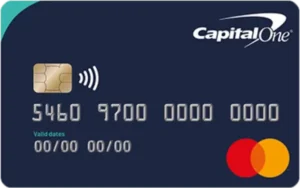Moving to a new country like the UK brings exciting opportunities, but also a unique financial challenge: establishing a credit history from scratch. Unlike many other nations, your overseas credit score generally doesn’t transfer, leaving you in a tricky spot when applying for essential financial products like credit cards.
However, with the right approach and an understanding of the UK credit system, new migrants can successfully build a strong credit profile. This article will guide you through the process, highlight key considerations, and recommend some of the best credit cards tailored for those new to the UK.
What is a credit card?
Credit cards are payment cards issued by financial institutions that lends money to the card holders to pay for goods or services with the obligation to repay the money back plus interest or fees.
The money that the financial institution lends you has a limit, and this is set when you are offered a credit card. The financial institution will charge you some interest on the amount spent which is commonly referred to as the balance on the credit card. Below is a very simple example of how credit card works for someone who has been offered a £1000 credit card.
1. Spending Money (Up to £1,000)
- You can use the card to buy things (e.g., groceries, clothes, petrol) up to £1,000 in total.
- Example: You spend £200 on groceries.
→ Your remaining limit: £800 (£1,000 – £200).
2. Paying Back
- At the end of the month, you get a statement (bill) showing what you owe (£200).
- You must pay at least the minimum payment (e.g., £5–£25) by the due date to avoid late fees.
- If you pay the full £200 by the due date, you won’t be charged interest.
3. If You Don’t Pay in Full
- If you only pay £50 (instead of £200), the remaining £150 rolls over to next month.
- The card company charges interest (e.g., 20% per year) on the unpaid £150.
- Next month, you’ll owe £150 + interest (e.g., ~£2.50 extra).
4. What Happens If You Max Out?
- If you spend the full £1,000, you can’t use the card until you pay some back.
- Example: You pay back £300 then your available credit becomes £300 again.
Why is a UK Credit History Important?
Your credit history in the UK is a record of how you’ve managed borrowing and repayments. Lenders use this information to assess your creditworthiness which essentially tells them how reliable you are at paying back money. A good credit score opens doors to:
- Better credit cards: With lower interest rates, higher limits, and more rewards.
- Loans and mortgages: Essential for larger purchases like a home or car.
- Mobile phone contracts and utility accounts: Many providers check your credit
- Rental agreements: Some landlords may check your credit as part of the tenancy application.
Without a UK credit history, you’ll find it difficult to be approved for most credit products but with time and focus you should be able to build a good credit history.
Key Steps to Building Credit in the UK for New Migrants
Before even thinking about credit cards, lay the groundwork for your financial presence in the UK:
- Open a UK Bank Account: This is fundamental. Most banks will require proof of address and identity (passport, visa).
- Get on the Electoral Roll (if eligible): While not all non-UK citizens are eligible, if you are a British, EU, or Commonwealth citizen, registering to vote helps confirm your address and identity to lenders. The Commonwealth is made up of 56 member countries so do check if you’re entitled before registering.
- Secure a UK Address: Lenders want stability. Ensure your name is on utility bills (gas, electricity, water, council tax) or your tenancy agreement.
- Get a UK Mobile Phone Contract: Paying your phone bill on time can contribute positively to your credit file. Going for a contract rather than pay-as-you-go is a better option for migrants who want to build their credit history.
- Pay Bills on Time: This is paramount. Whether it’s rent, utilities, or phone bills, consistent on-time payments demonstrate responsibility. The easiest way not to miss any bill is to set up standing orders or direct debits which mandates the service provider to collect the amount due on a given date.
Understanding Credit Cards for New Migrants
Most credit cards available to new migrants will fall into the “credit builder” category. These cards are specifically designed for individuals with limited or no credit history. Here’s what to expect:
- Higher Interest Rates (APR): These cards typically have higher Annual Percentage Rates (APRs) than standard credit cards. The focus is on building credit, not on low-cost borrowing. The aim is to pay your balance in full each month to avoid interest.
- Lower Credit Limits: Initial credit limits will be modest (e.g., £200-£1,500). This helps you manage your spending responsibly and reduces the risk for the lender.
- No or Low Annual Fees: Most credit builder cards in the UK do not charge an annual fee, which is a definite plus.
The goal is to use these cards responsibly: make small purchases, pay the full balance on time every month, and stay well within your credit limit (ideally using no more than 25-30% of your limit). This demonstrates to credit reference agencies (Experian, Equifax, TransUnion) that you are a reliable borrower, gradually improving your credit score.
Best Credit Cards for New Migrants in the UK
While individual circumstances vary, here are some commonly recommended credit cards for new migrants looking to build credit:
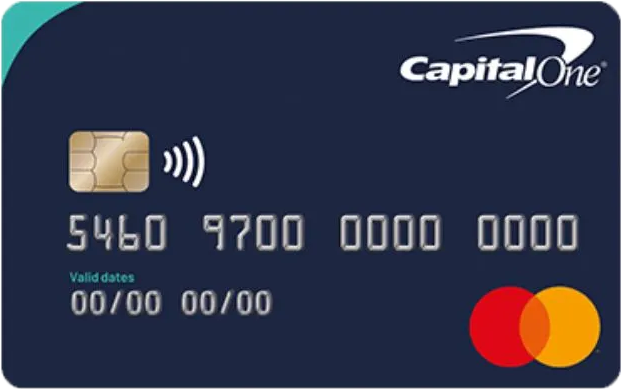
WHY ITS GOOD
– One of the most popular credit builder cards, Capital One has a history of accepting applicants with limited credit history. They offer an eligibility tool that performs a soft search, so you can see if you’re likely to be accepted without affecting your credit score.
TYPICAL FEATURES
– Moderate APR (e.g., 34.9% representative APR variable), initial credit limits from £200 to £1500, no annual fee. They may offer credit limit increases over time if you manage the card well.
Best for: Those who want a simple credit card focused on credit building
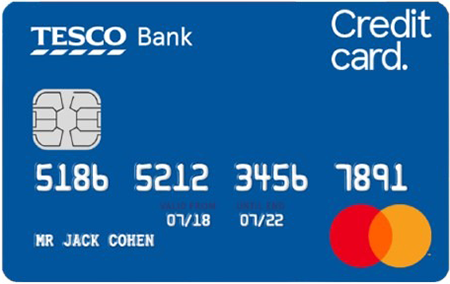
WHY ITS GOOD
– Specifically designed to help build credit score and collect rewards for those with bad or poor credit. If you regularly shop at Tesco, you can also earn Clubcard points, adding a small reward element. Gives you 1 point for every £4 spent in Tesco. They also offer an eligibility checker.
TYPICAL FEATURES
– Competitive APR for a credit builder card (e.g., 29.9% representative APR variable), initial credit limits from £200, no annual fee and monthly repayments from £25
Best for: Migrants with some credit history and want to improve it. Also good for those who do regular shopping at Tesco as it earns you Clubcard points.
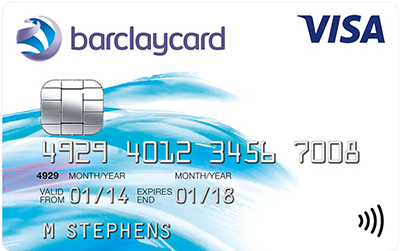
WHY ITS GOOD
– Barclaycard is a major UK issuer, and their Forward card is designed for building credit especially if you are new to credit cards. A notable feature is the potential for an interest rate reduction if you make all your payments on time for the first year. They also offer an eligibility checker.
TYPICAL FEATURES
– Representative APR around 33.9%, credit limits from £50-£1,200.
Best for: Migrants that have not been declared bankrupt in the past 6 months or have more than one CCJ and have an employment with an income of more than £3,000 per year.
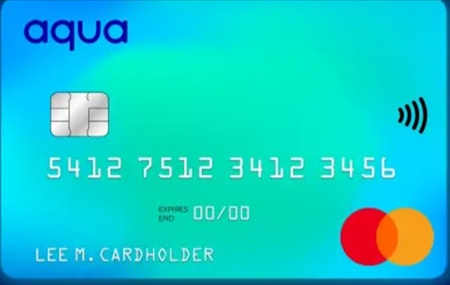
WHY ITS GOOD
– These brands are specifically geared towards individuals with poor or limited credit histories. They often have higher APRs than the options above but can be more accessible for some.
TYPICAL FEATURES
– Higher representative APRs (e.g., 34.9% to 39.9%), lower initial credit limits, no annual fees. They also offer eligibility checkers.
Best for: New migrants who need to start building credit immediately
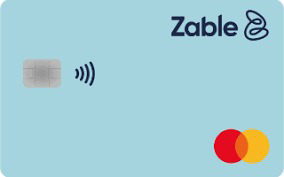
WHY ITS GOOD
– Zable specifically focuses on newcomers to the UK to help build their credit profile. It’s designed to support those with limited credit history or those who have had credit problems in the past.
TYPICAL FEATURES
– Representative APR around 34.5%, offers a 35-day interest-free period if the full balance is paid monthly.
Best for: New migrants who have a monthly income on excess of £800
| Card Name | Best For | Credit Limit (Typical Initial) | APR (Responsive Variable) | |
|---|---|---|---|---|
| Capital One Classic | General credit building, those new to UK credit. Good eligibility checker. | From £200 | 34.90% | Button |
| Tesco Bank Foundation | General credit building, Tesco shoppers. | From £200 | 29.90% | Button |
| Barclaycard Forward | General credit building, potential for interest rate reduction. | From £50-£1,200 | 33.90% | Button |
| NatWest Credit Builder | Existing NatWest current account customers (3+ months). | From £250-£1,500 | 34.90% | Button |
| Marbles/Aqua/Luma/Ocean | Those with very limited or poor credit history, higher accessibility. | Lower limits | 34.9% – 39.9% | Button |
| Zable Credit Card | Building credit, instant spending with digital wallets. | Not specified | 34.50% | Button |
Before You Apply: Essential Tips
- Use Eligibility Checkers: Most reputable credit card providers offer an “eligibility checker” or “soft search” tool. This allows you to see your chances of approval without leaving a mark on your credit file. Use these liberally before making a full application.
- Understand the APR: While you should aim to pay your balance in full to avoid interest, be aware of the Annual Percentage Rate (APR). This is the cost of borrowing if you don’t pay off your entire balance.
- Read the Small Print: Always review the terms and conditions carefully, including any fees, interest rates, and repayment requirements.
- Open a UK bank account: Most credit card issuers will require a UK bank account to set up payments.
- Set Up Direct Debits for Payments: This ensures you never miss a payment, which is crucial for building a positive credit history. Even paying the minimum amount on time is better than missing a payment however, you should ALWAYS ensure to pay in full.
- Proof of Address & Income: Be ready to provide proof of address or income as some card issuers may require this before completing your application.
- Don’t Max Out Your Card: Try to keep your credit utilization low (the amount of credit you’re using compared to your limit). Experts recommend keeping it below 25-30%.
- Be Patient: Building a good credit history takes time, typically several months to a couple of years. Consistent responsible use will gradually improve your score.
- Monitor Your Credit Report: Sign up for free credit reports from the UK’s three main credit reference agencies: Experian, Equifax, and TransUnion. This allows you to track your progress and spot any errors. Some services offer free credit score checks.
Alternatives to Credit Cards for Building Credit
While credit cards are excellent for building credit, consider these additional avenues:
- Prepaid Cards with Credit Building Features: Some prepaid cards, while not offering credit themselves, report your spending and repayment patterns to credit bureaus, helping to build a positive history. Research these carefully as they are not as common.
- Rent Reporting Services: Services like CreditLadder can report your rent payments to credit reference agencies, which can significantly boost your score, especially if you’re a new migrant without traditional credit lines.19
- Small Loans: If you have a stable income, a small, short-term loan (e.g., from a credit union or reputable online lender) repaid consistently can also help, but proceed with caution due to potentially high interest rates.
Conclusion
Establishing a financial foothold in a new country can feel daunting, but it’s entirely achievable with a strategic approach. For new migrants in the UK, securing a credit card is a vital step towards building a healthy credit history. By focusing on credit builder cards, managing them responsibly, and consistently paying bills on time, you’ll pave the way for a stronger financial future in the UK. Remember to prioritize eligibility checkers and patience, and soon you’ll find more doors opening in the UK’s financial landscape.



